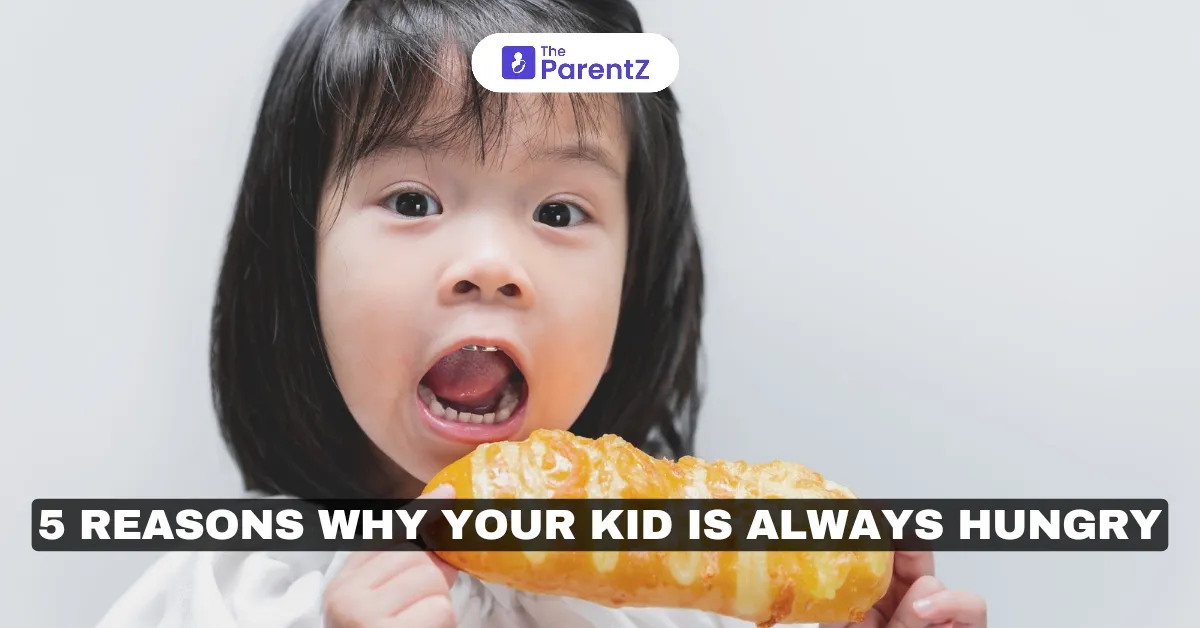Every parent must have been through moments when their child just finished eating a full-course meal, and just five minutes later, they come saying, ‘I’m still hungry.’
This might perhaps make you figure and think, why is your little one always hungry?
Here are the five most common reasons kids seem to be constantly hungry.
Your Kids Are Growing A Lot
The ultimate truth is—your kids are growing at a very fast pace, and they probably need some extra energy to support that extra growth. According to the American Academy of Pediatrics, kids experience rapid growth between the ages of 2 and 6 years and then again during puberty.
During these stages, their hunger further increases because their bodies are just using more energy to develop bones, muscles, and brain function. This is the time when you must ensure they are eating nutrient-dense foods instead of just snacking on empty calories.
Not Getting Enough Protein or Fiber
The other possible reason might be because they are not getting enough protein and fiber in their diet. This happens because foods high in sugar and refined carbs digest too quickly, causing blood sugar spikes and crashes. The end result? You little one end up getting hungry sooner than expected.
Therefore, it's essential to make sure each meal includes fiber and protein, as fiber slows digestion and keeps hunger in check, while protein plays an essential role in regulating blood sugar levels.
They Might Be Thirsty, Not Hungry
Yes, this fact may take you aback. But here’s the truth—your kid’s body may sometimes confuse thirst with hunger. What does that mean? It means your child might not actually be hungry, but all they need is a glass of water.
In fact, as per a survey, nearly 60 percent of kids do not drink enough water daily, which ultimately results in dehydration and increased appetite.
The best approach is to, before handing your child another snack, offer water first. If they are still hungry after drinking, they probably do need food.
Your Kids Are Bored
Just as adults, kids also believe in the concept of eating just because they’re bored. If your child is asking for food every 20 minutes, that just might be a way of entertainment.
If your kids are unsure why they really are hungry, you can also try distracting them with an activity before actually offering food.
Their Sleep Schedule Is a Mess
Yes, sleep and hunger are more connected than what you know. The science behind it is that when kids don’t get enough sleep, their bodies produce more ghrelin, the hunger hormone, and they feel hungrier. In fact, in a study, it has been revealed that kids who sleep less than 10 hours per night tend to feel hungry throughout the day.
For toddlers aged 1-2 years, it is recommended to take 11-14 hours of quality sleep. While for preschoolers aged 3-5 years and school-age kids 6-12 years, these figures are 10-13 hours and 9-12 hours, respectively.
Final Thoughts
If your child is always hungry, it might mean their body is growing, adjusting, or needing something different. At this phase, it is important to pay attention to their diet, water intake, activity levels, and sleep schedule to see if their hunger is actually real. In addition, a good balance of protein, fiber, water, and sleep can actually play a big role in keeping their hunger under control.





Be the first one to comment on this story.